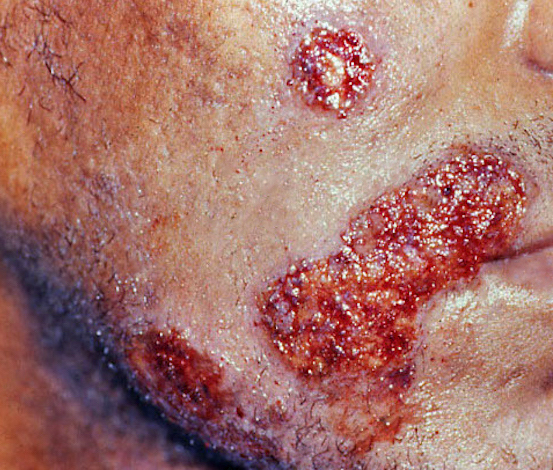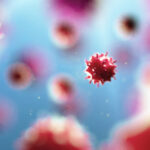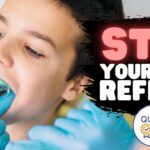Recurrent herpes simplex virus (HSV) infection, particularly HSV-2, poses a significant clinical burden in individuals with HIV. Due to the immunocompromised status in HIV-positive patients, HSV infections are more frequent, severe, and persistent. HSV coinfection also contributes to increased HIV viral load and transmission risk, necessitating a structured suppression strategy.

Pathophysiology of HSV in HIV-Positive Individuals
Herpes simplex virus remains latent in neuronal ganglia and reactivates periodically. In HIV-infected patients, compromised cellular immunity leads to increased reactivation frequency and prolonged episodes. HSV-2, in particular, is associated with mucocutaneous ulcers and plays a synergistic role in HIV replication by activating local inflammatory pathways and upregulating HIV target cell expression.
Clinical Presentation and Diagnosis
In HIV patients, recurrent HSV typically manifests with:
- More frequent genital or perianal lesions
- Atypical ulcerations or necrotic lesions
- Prolonged healing times
- HSV shedding even during asymptomatic periods
Diagnosis is confirmed using:
- PCR testing for HSV DNA from lesion swabs
- Type-specific serology to differentiate HSV-1 and HSV-2
- Tzanck smear, although less sensitive
Rationale for Suppressive Therapy in HIV
Suppressive antiviral therapy for HSV in HIV patients serves several purposes:
- Reduces frequency and severity of outbreaks
- Limits mucocutaneous transmission
- Reduces genital shedding and potential HIV transmission
- Decreases systemic inflammation and HIV viral replication
First-Line Antiviral Regimens for Suppression
1. Acyclovir
- Dosage: 400 mg orally twice daily
- Advantages: Low cost, effective HSV suppression
- Limitations: Requires renal dosing adjustment; resistance risk in long-term use
2. Valacyclovir
- Dosage: 500 mg to 1 g orally once daily
- Advantages: Better bioavailability; once-daily regimen improves adherence
- Preferred in patients with frequent or severe recurrences
3. Famciclovir
- Dosage: 250 mg orally twice daily
- Alternative: For patients with acyclovir intolerance or resistance
Suppressive Therapy Duration:
- Indefinite suppression is recommended in patients with CD4 count <200 cells/mm³ or frequent recurrences
- Periodic reassessment is essential after immune reconstitution with ART
Impact of Antiretroviral Therapy (ART) on HSV Recurrence
While ART improves immune status, it may not fully eliminate HSV recurrence. HSV reactivation may persist even with undetectable HIV viral loads due to incomplete mucosal immunity restoration.
Clinical Findings:
- ART reduces the severity but not the frequency of HSV shedding
- Coinfection management should continue alongside ART initiation
- Some studies suggest that HSV suppression may reduce HIV plasma viral loads by up to 0.5 log₁₀
Management of Acyclovir-Resistant HSV
Resistance Considerations:
- Often occurs in patients with advanced AIDS and chronic exposure to acyclovir
- Suspected in cases of non-healing lesions despite therapy
Alternative Treatment:
- Foscarnet: 40 mg/kg IV every 8 hours until healing
- Cidofovir: Used topically or intravenously in refractory cases
Resistance testing should be performed in non-responding cases to guide targeted antiviral therapy.
Monitoring and Follow-Up
Key Evaluation Parameters:
- Frequency of recurrences
- Healing time of lesions
- Development of resistance
- Patient adherence to therapy
- Renal function (especially in prolonged antiviral use)
CD4 counts and HIV viral loads should be monitored in parallel to assess the overall immunologic response and guide changes in HSV suppression strategy.
Prevention Strategies and Patient Education
Sexual Health Counseling:
- Use of condoms and antiretroviral PrEP in serodiscordant couples
- Disclosure of HSV status to partners
Routine Screening:
- HSV serologic testing in newly diagnosed HIV-positive individuals
- Prompt treatment of initial herpes episodes
Suppressing recurrent HSV infection in HIV-infected individuals is a critical component of comprehensive care. Integrating suppressive antiviral therapy with antiretroviral treatment and ongoing patient monitoring reduces the morbidity of HSV and supports better HIV control. Personalized treatment, vigilant follow-up, and patient education remain essential pillars in optimizing outcomes in this high-risk population.

